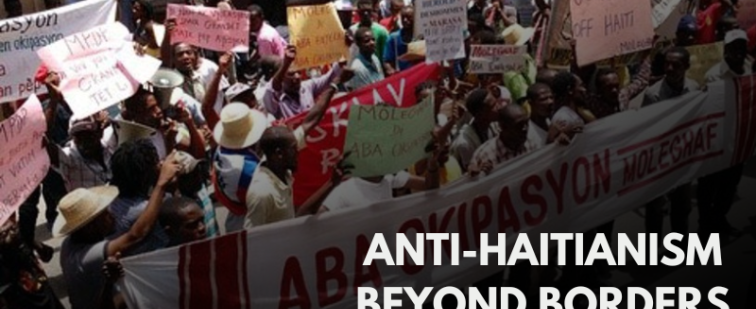Home
Yet another voice is weighing in on the fate of la frontera these days—but it’s a poet, not a pundit. In her latest novel, The Guardians, the multi-genre writer Ana Castillo takes a look at life on the U.S.-Mexico border with sensitivity and imagination—qualities often sorely lacking in the immigration debate today. Told through the eyes of several characters, The Guardians explores the politics of the border with irony, lyricism and desert-spare clarity.
When the ultras come out, immigrants stay home. This is the unspoken rule in the streets of Spain and a direct symptom of the spike in racial violence in this country since 2006. In local slang, “ultras” refers to ultra-right-wing and racist groups or individuals that have recently attacked immigrants in Spain. The Spanish government is left wondering whether it has a xenophobic "offensive" on its hands.
For many young Puerto Ricans, reggaeton is today what salsa used to be years ago: a “national” soundtrack and the culture’s international musical representative. Yet the genre was initially condemned in the mainstream and subject to hearings in the Puerto Rican senate. What accounts for this shift? In a nutshell: commercial success, achieved in the most unexpected of ways.
George W. Bush inadvertently created a public maelstrom in January 2004, when he proposed a new temporary worker program and a road to citizenship for millions of unauthorized immigrants. By 2006, immigration had become the major issue on the nation’s political agenda. The last time this happened was in 1994, when California voters passed Proposition 187, which would have denied unauthorized immigrants many public benefits and required state employees (including health care workers and school teachers) to point authorities to “apparently illegal aliens.”
Brazil lags far behind her left-leaning neighbors in government initiatives that bring privatized national resources back into the public domain. In recent months, however, Brazil’s Landless Workers’ Movement (MST) and other groups have launched mass actions that demand similar moves toward national resource sovereignty. The MST’s recent triple occupation of Brazil’s Companhia Vale do Rio Doce (CVRD), the largest iron ore exporter in the world, is seen by some as the opening salvo in these new efforts.
As disgraced former president Alberto Fujimori goes on trial in Lima, Peru, for human rights atrocities, the National Security Archive posted a declassified Defense Intelligence Agency cable [PDF] tying him directly to the executions of unarmed rebels who had surrendered after the seizure of the residence of Japanese ambassador in 1997. “President Fujimori issued the order to ‘take no prisoners,’” states the secret “roger channel” intelligence cable. “Because of this even MRTA [Tupac Amaru Revolutionary Movement members] who were taken alive did not survive the rescue operation.”
 Chávez holding Venezuela's 1999 constitution. (ABr, CC) |
How should the narrow defeat of the referendum to amend Venezuela’s 1999 constitution be interpreted? Does the fact that 50.7% of voters rejected the omnibus package of 69 proposed constitutional amendments indicate that Venezuelans as a whole are tired of Chávez and wary of going any further along the path towards “socialism of the twenty-first century”?
 Evo Morales, Photo: ABI. Evo Morales, Photo: ABI. |
Nearly two years into the presidency of Evo Morales, government officials and leftist social organizations are determined to break with the past and transform the nation. The opposition calls it a civil war. The government calls it a revolution. Other Bolivian activists and analysts call it business as usual. A look at public opinion and recent conflicts in Bolivia exposes the challenges facing Bolivia's first indigenous president.
As tourism continues to grow into one of the most profitable sectors of Puerto Rico’s economy, many small communities have found themselves threatened by development companies. The small coastal village of Piñones, just outside the town of Loíza, has managed to defend itself from the designs of PFZ Properties, which belongs to a Puerto Rican developer named Joel Katz, an entrepreneur known to be close to the inner circles of the Partido Popular Democrático. “If there are still natural resources in Piñones, it’s because of the community,” says Milagros Quiñones, a local activist.
Since 1901, when the first duties between puerto Rico and the United States were abolished, the island’s economy has served as a kind of experiment in what we today call neoliberalism. Puerto Rico has long been notable for its deep integration into the North American system, the maximal fluidity of labor and capital flows between it and the U.S. mainland, and its dependence on U.S. imports. This century-old brand of colonial capitalism has been adjusted and readjusted over the years, often in response to system-wide shocks—most recently and dramatically in 2006, when the insular government ran out of money and temporarily laid off about 80,000 public employees.












